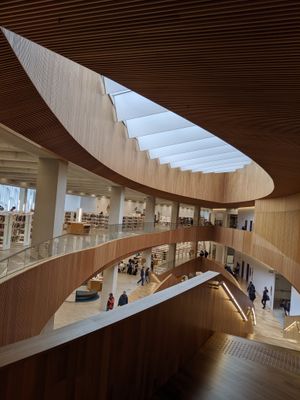I am pleased to note the appearance of a new report which synthesizes research findings about scholarly information practices and draws out lessons for libraries ..
Palmer, Carole L., Lauren C. Teffeau and Carrie M. Pirmann. 2009. Scholarly Information Practices in the Online Environment: Themes from the Literature and Implications for Library Service Development. Report commissioned by OCLC Research. Published online at: https://www.oclc.org/programs/publications/reports/2009-02.pdf [pdf]
From the introduction:
Research libraries exist to support scholarly work. In recent years, the literature on scholarly practices and information use has been growing, and research libraries should be prospering from this increased base of knowledge. Unfortunately, the profession has no effective means for systematically monitoring or synthesizing the published results. This review begins to address the problem by reporting on the state of knowledge on scholarly information behavior, focusing on the information activities involved in the research process and how they differ among disciplines. It provides an empirical basis for identifying promising directions and setting priorities for development of digital information services to support and advance scholarship. [Scholarly information practices in the online environment pdf]
The body of the report is structured around ‘scholarly primitives’: “The sections that follow present the literature on scholarly information work framed around five core scholarly activities: searching, collecting, reading, writing and collaborating, with two or more primitives distinguished for each activity. Four cross-cutting primitives that are associated with more than one activity are also covered and serve as an important indicator of how the processes involved in the conduct of research and scholarship overlap and interact.”

For some additional background see the note by my colleague Constance Malpas who commisioned the work in support of the RLG Partnership: Moving library services into research flows.



